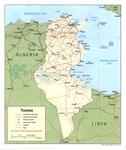PA3 is pleased to learn that one of our former First Friday Luncheon speakers, Catherine (Cate) Reilly, has been selected by the University to receive one of the top graduate student honors http://gradschool.princeton.edu/award-name/porter-ogden-jacobus-fellowship . Kudos to Cate - thanks for joining us twice!
Posted by Princeton AAA about 11 years ago.
Professor Beth Lew-Williams would like to invite Princeton alumni (and their families) to tour and discuss the New York Historical Society’s temporary exhibit, “Chinese American: Exclusion/Inclusion,” at 11am on Saturday, February 21. Following the museum, we will have a banquet lunch in Chinatown at Oriental Garden at 1pm. Interested alumni will join a group of Princeton students currently enrolled in Asian American history. The cost of entry to the museum is $14 adults/ $12 seniors and the cost of lunch will be $20 a person. Space will be limited to 15 alumni and their companions. RSVP to Mo Chen (mo.chen@verizon.net), who will provide further details.
"Chinese American: Exclusion/Inclusion" explores the centuries-long history of trade and immigration between China and the United States—a history that involved New York from its very beginnings—and will raise the question “What does it mean to be an American?” The New York Times writes, “[T]he narrative at the New-York Historical Society’s vigorous and imaginative new exhibition — “Chinese American: Exclusion/Inclusion” — is not just of China’s impact on United States history (which is part of the story) or of the experiences and suffering of Chinese immigrants (which is another part). It is how Chinese-American identity came to be, how immigration and discrimination were followed by recrimination and conflict, and how, finally, a people’s trials give way to celebration."
Posted by Princeton AAA about 11 years ago.
Related Events
First Friday Lunch (
Friday, February 6, 2015 - 12:00 PM to
1:30 PM
)
Joel Rozen, doctoral candidate in Anthropology, will discuss his work on Tunisia, before and after the 2011 uprising.
Location: Nassau Club, Princeton
Cost: $25 for dues payers; $30 everyone else
Posted by lydia about 11 years ago.
A4P Princeton Area Lunar New Year Get Together
Brunch Buffet to Celebrate the Year of the Sheep and Catch Up with PU Alumni, Family, and Friends
Date: Sunday, Feb. 22, 11:30 a.m. at Superstar Buffet
Location: Super Star East Buffet, 311 Nassau Park Blvd, Princeton, NJ 08540 (next to Sam's Club)
http://www.superstareastbuffet.com/
Cost (food, tax, and tip): Adults $13; Children ages 7 – 11 $8; Children ages 3 – 6 $7.
Please RSVP to: Mo Chen ’80 mo.chen@verizon.net with your name, affiliation (class, parent, staff member, professor etc.), and number of adults and children in your party. Pls. respond by Feb.18th. The room at the restaurant seats 30 comfortably.
Posted by Princeton AAA about 11 years ago.
Doyle Hodges, PhD Candidate at the Woodrow
Wilson School discusses civil-military relations
Doyle K.
Hodges, a doctorate candidate in the area of security studies at the Woodrow
Wilson School of Public and International Affairs made a presentation about the
relationship between civil-military relations in democratic political systems
and compliance with the laws and norms of War at the Nassau Club in Princeton,
New Jersey, on October 3, 2014.
Mr. Hodges is
a retired naval officer with twenty-one years of service. He commanded two
naval vessels, among other assignments. He also taught at the United States
Naval Academy.
His career
included several periods of duty that required his attention to political and
strategic matters. One of those assignments was as an aide to the Naval
Inspector General at a time when prisoner abuse in Iraq became public
knowledge. Consequently, the Inspector General and his staff, including Mr.
Hodges, investigated the treatment of prisoners at the Guantanamo facility and
later throughout the navy.
Mr. Hodges
noted that the abusive treatment of prisoners in the Global War on Terrorism
originated from the civilian political leadership, not from the military.
Recognition of that aspect of the problem leads naturally to the study of
civil-military relations and its influence on compliance with international
standards in the treatment of prisoners.
When
intensive interrogation and other potential abusive handling of prisoners seems
to be needed, at least in the eyes of some leaders, then there are three
choices:
1. Simply to proceed with such procedures,
ignoring international
norm,
the possibilities of adverse publicity, and a decline in
morale
of the interrogators;
2. To refrain from possibly abusive handling
of prisoners;
3. To "subcontract" abusive
measures to the Central Intelligence Agency (CIA), civilian security contractors,
or indigenous governments.
Such a
situation creates tension for military authorities whose professional
orientation has been largely toward avoiding involvement in political
decisions.
Such, at least, is the theory, as heavily influenced by
Samuel P. Huntington's study The Soldier
and the State (1957), which argued that military professionalism developed
in the United States during the 19th century as military leaders focused on
purely military concerns and, in most cases, no longer aspired to political
office.
This apolitical
military self-image has by no means been wholly accurate. Mr. Hodges cited the
conflict between President Harry Truman and General Douglas MacArthur about how
far United Nations troops should advance into North Korea during the Korean
War. Several years earlier, moreover, President Truman and both civilian and
uniformed leaders of the navy contended openly about the relative budgetary
support that should be given to the air force and the navy. Truman emerged as the victor in both these
controversies, but they demonstrated that political and military decisions
cannot be separated neatly.
An important
factor in considering the treatment of prisoners is the nature of the adversary.
In Vietnam, prisoners taken from the ranks of the North Vietnamese Army were
viewed simply as prisoners of war, but guerrillas, who struck United States and
allied troops without wearing uniforms, were considered to be in a different
category. Similar considerations emerged in Afghanistan and Iraq.
In
counterinsurgency conflicts, abuses and violations of international law may be
perpetuated by both sides, as, for example, during British efforts to suppress
nationalists fighting in the Irish Republican Army and similar guerrilla
organizations. The conflict between Israel and Hamas is another example of a
situation where behavior on the battlefield has become less sensitive to legal
restraints.
Civil-military
relations in democracies need an ethical foundation.
In the modern world, liberal democracies often turn to the
military services, but those services, in turn, need principles to follow in
murky conflicts.
In closing,
Mr. Hodges noted that in his studies he is benefiting materially from the
diversity of the faculty and student body of the Woodrow Wilson School.
Posted by lydia about 11 years ago.


